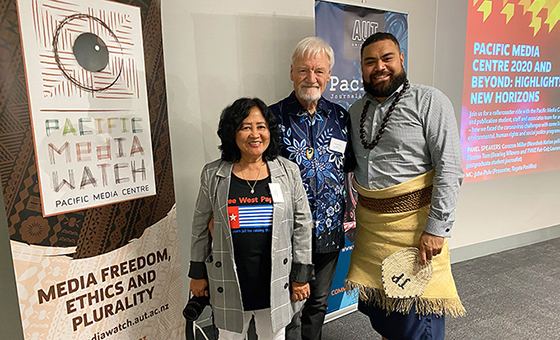A JOURNALIST who sailed on board the bombed environmental ship Rainbow Warrior, was arrested at gunpoint in New Caledonia while investigating French military garrisons in pro-independence Kanak villages, and reported on social justice issues across the Pacific has stepped down as founding director of the Pacific Media Centre.
Professor David Robie, 75, an author, academic, independent journalist and journalism professor at Auckland University of Technology, retired last week after more than 18 years at the institution.
He has been working as a journalist for more than 46 years and as an academic for more than 27 years.
- READ MORE: Pacific journalism, media and diversity researchers tackle challenges ahead
- Gallery: PMC celebrates Pacific ‘reset’ vision and farewells founding director
As well as playing a role in critical moments of history as a journalist in the region, his students have also covered landmark events that helped shape some Pacific nations, especially in Melanesia – such as the 1997 Sandline mercenary crisis in Papua New Guinea and the George Speight coup in Fiji in May 2000.
But a journalism or academic career were not always clearcut pathways
for Dr Robie. During his studies in high school, he was heavily
involved in outdoor pursuits and he became a Queen’s Scout.
























